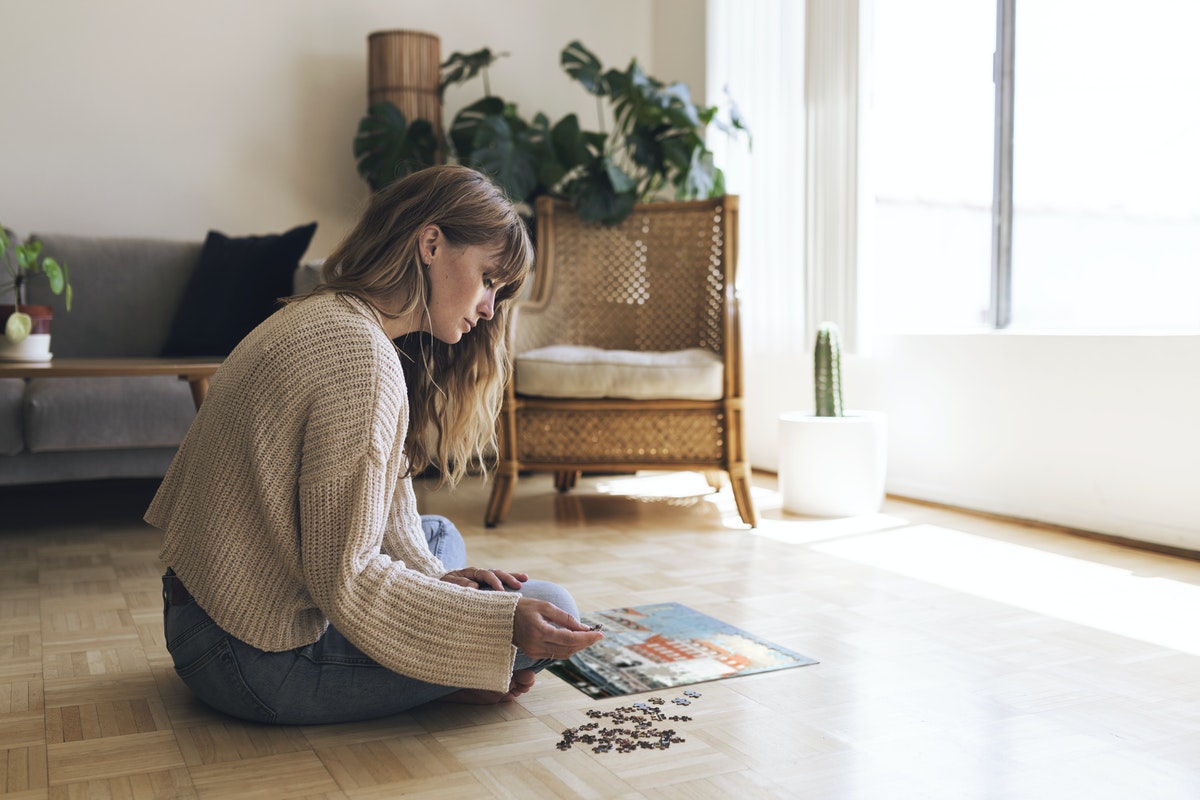Have you heard of homes that are havens—places of comfort and shelter, a refuge from the outside world? They sound so peaceful and serene. You can you make your home a place to manage and escape stress in a healthy, calm environment.
Note that if stress is overwhelming you or if you have any mental health concerns, please reach out for help. Advice and support are always available from licensed mental health professionals.
Tips to De-stress Your Home
1. Focus on Spaces for the Basics of Stress Management
- The kitchen: Stock the pantry and the refrigerator with nutritious foods so you’re prepared to eat well. Healthy foods can fuel your physical and mental well-being.
- The bedroom: Healthy sleep patterns and getting the right amount of sleep at regular times can help you be equipped to manage stress. Make your bedroom calming. Try to keep it uncluttered, at a temperature that’s comfortable for you to sleep, dark at night, and screen-free, especially at bedtime.
- Space for activity: Exercise is key to managing stress. Even if your space is limited, try to clear a spot where you can stretch or even run (or dance) in place. Designate a place for your sneakers so you know where they are when you’re ready to get fresh air or take a walk—both of which are stress busters.
2. Get Organized
An organized home can help lower your stress levels by making you feel calmer and in control. Try these tips:
- Have a place for everything, and put everything in its place. Think of the time you’ll save and stress you’ll cut just by knowing where things are when you need them.
- Prioritize your to-do list so that you don’t get overwhelmed.
- Set realistic goals.
- Take action if something in your home is causing you stress. For example, if a pile of unopened mail raises your stress level, find time to open it, sort it, recycle it, pay bills, and complete any other required tasks.
2. De-clutter
- Clear the clutter. An uncluttered space can have a soothing effect.
- Tackle clutter wisely—don’t let the act of decluttering cause you more stress. There are many ways to declutter. You can set large decluttering goals or smaller ones.
- Once a day or once a week: Fill one trash bag with things to donate or throw away or spend one hour decluttering.
- Pick a specific category you’d like to organize. For example, if you have pens and pencils all over the house, gather and organize all of them at once. If you have coats in multiple places, collect them all in a pile and decide how you’ll store them.
- Start small if you feel overwhelmed. For example, if organizing an entire closet seems like too much, try a drawer or a shelf.
- Try cleaning a little bit each day. For example, set the timer for fifteen minutes and clean as much as you can in that amount of time. Put everything where it belongs. Not only will you have a tidy home, you’ll also boost your mood with movement. That fifteen minutes of activity can be energizing.
3. Make Room for Fun and Relaxation
- Make space to have fun. Doing enjoyable activities can help lower your stress level. Set up room in your home to do things you enjoy, like cooking, playing games, or having friends over.
- Set aside space to relax.
- Find a quiet, comfortable, clean space to decompress.
4. Use Color and Light
- Surrounding yourself with colors you like or colors that soothe you can boost your mood, as can light. (Just make sure it’s dark when you go to bed so that you get restorative sleep.)
5. De-stress Relationships
- If you live with others, try engaging in positive communication to address any stress in the relationship.
Remember that a calm, less stressful home is not about décor, large spaces, or things. It’s about mindful practices that minimizes stress so that you can live a more positive life.









